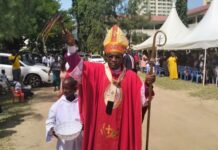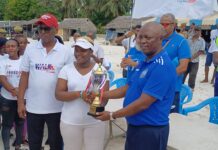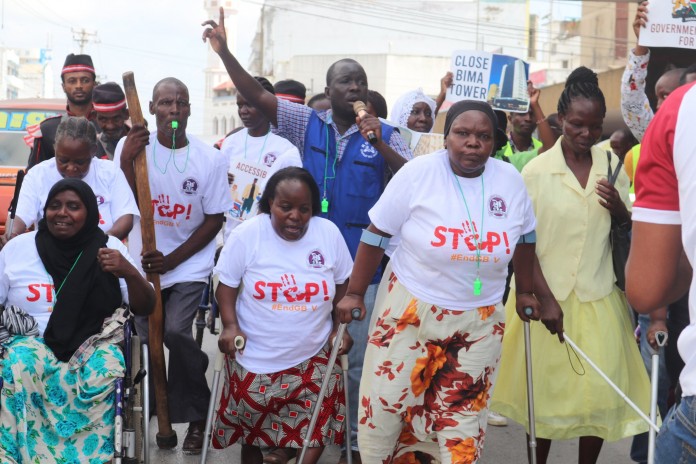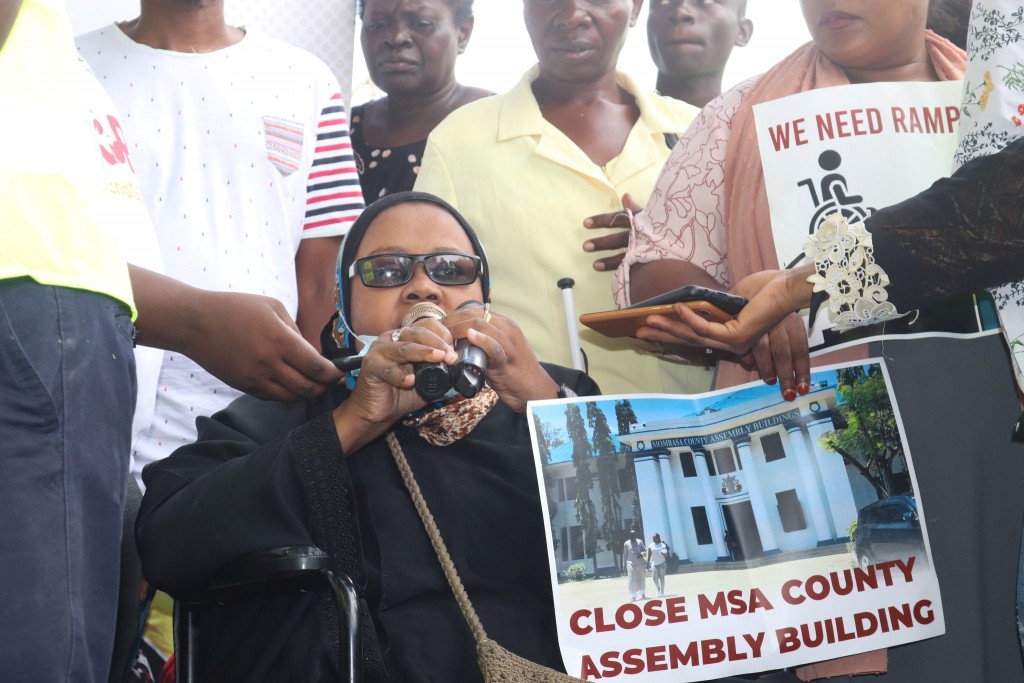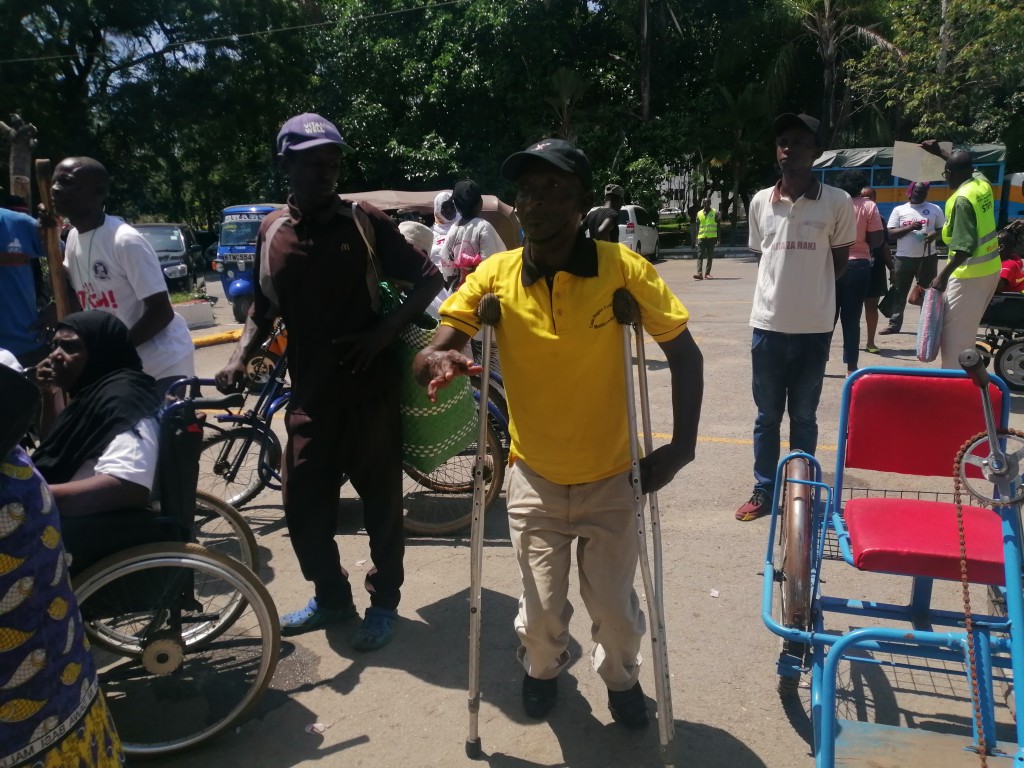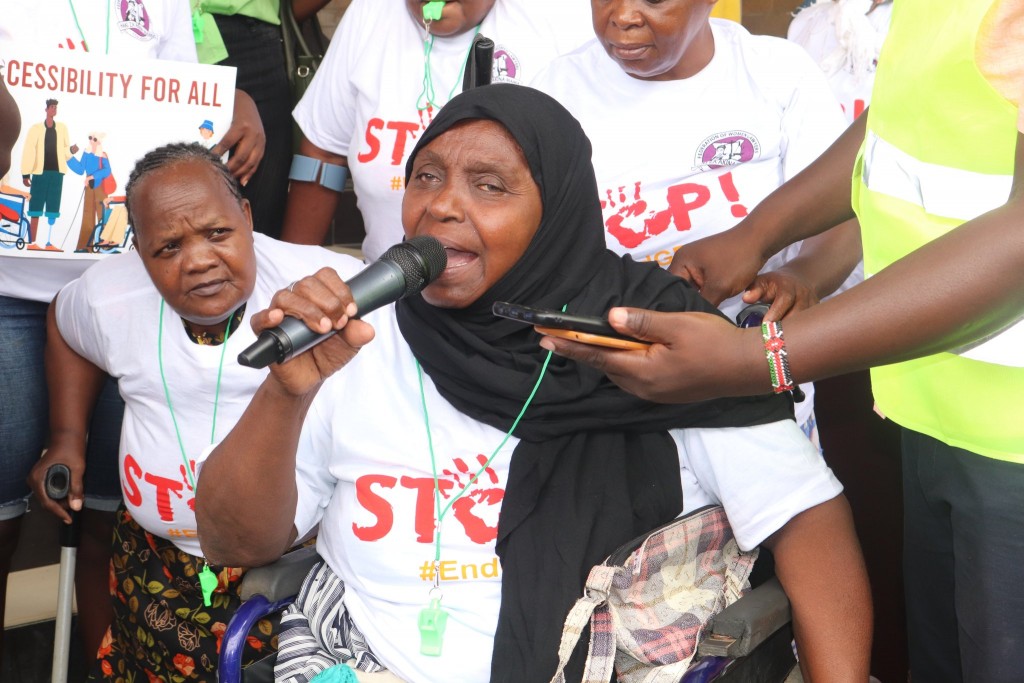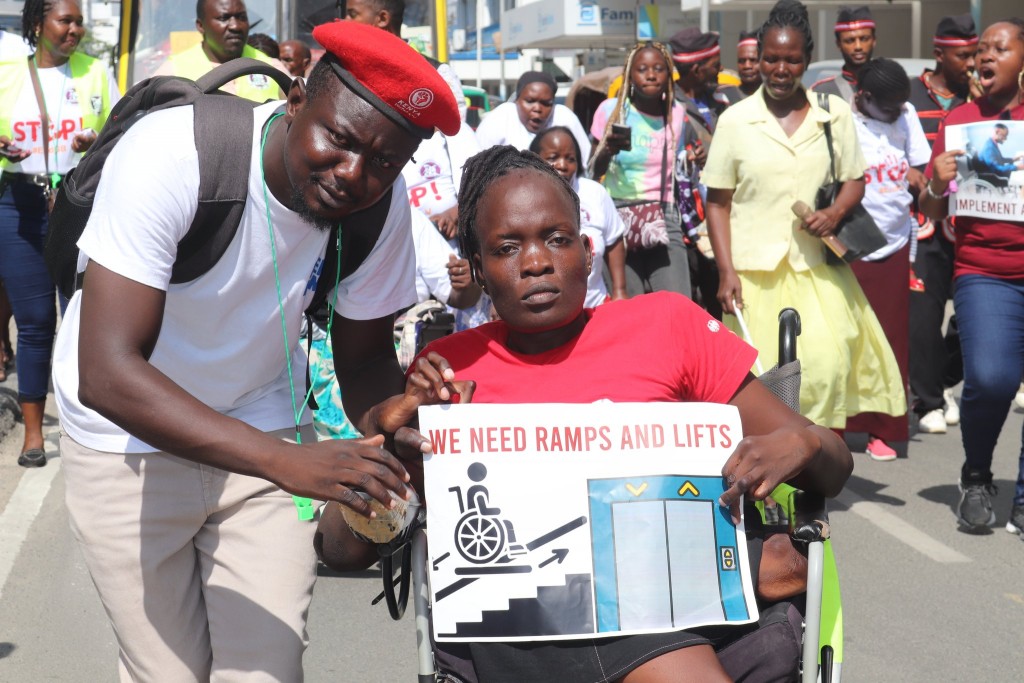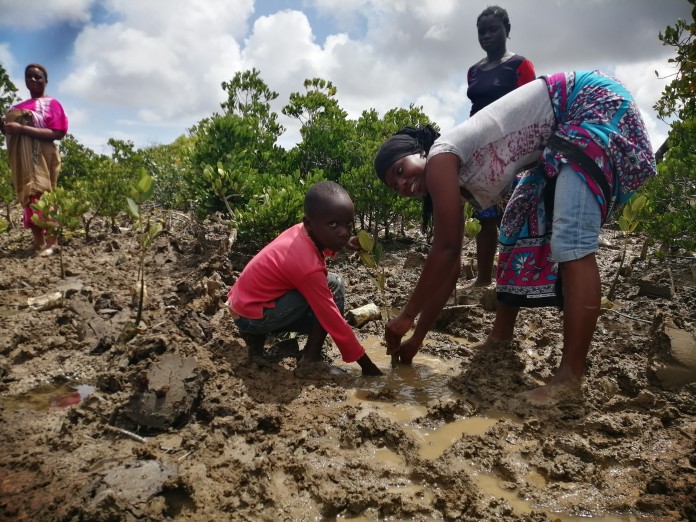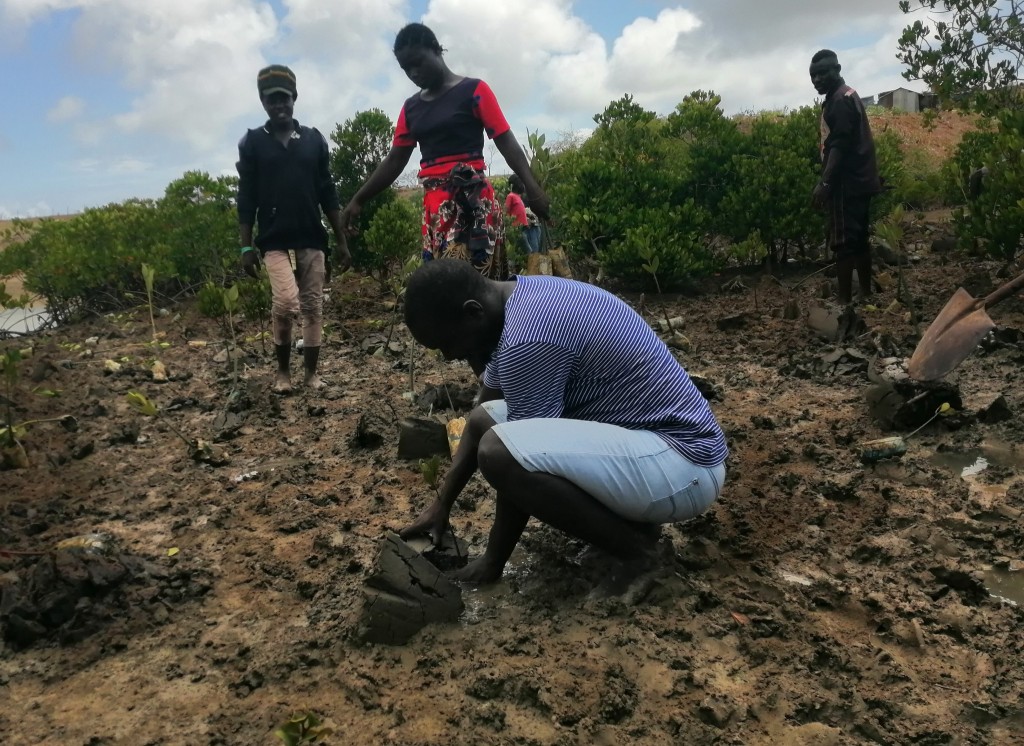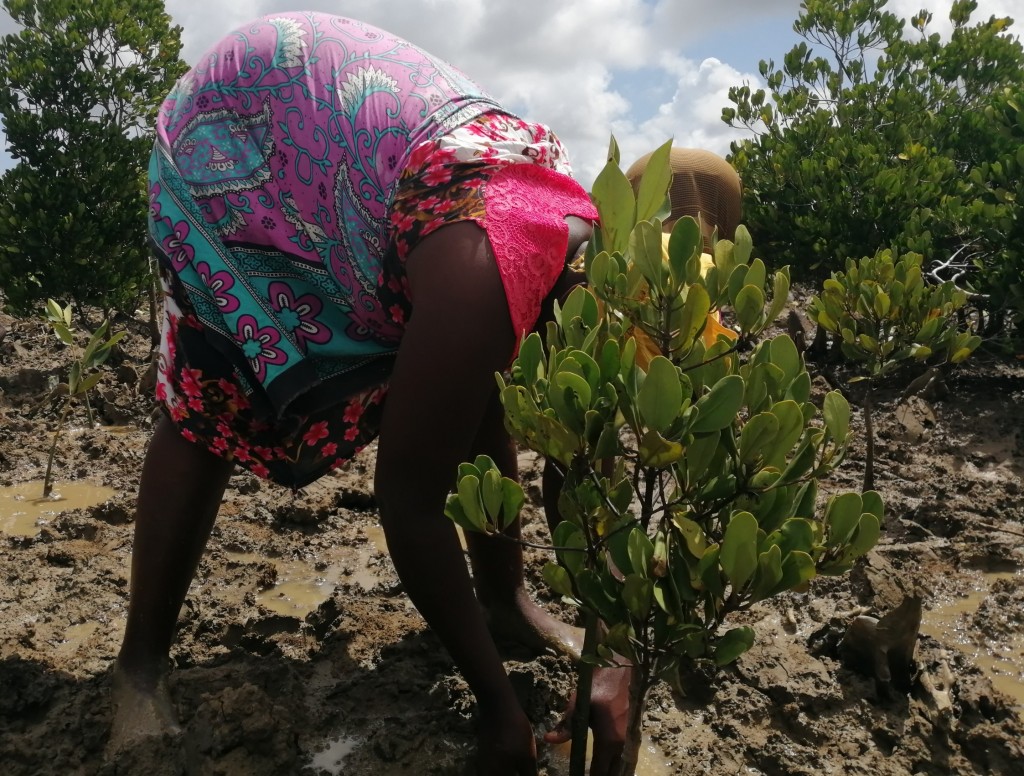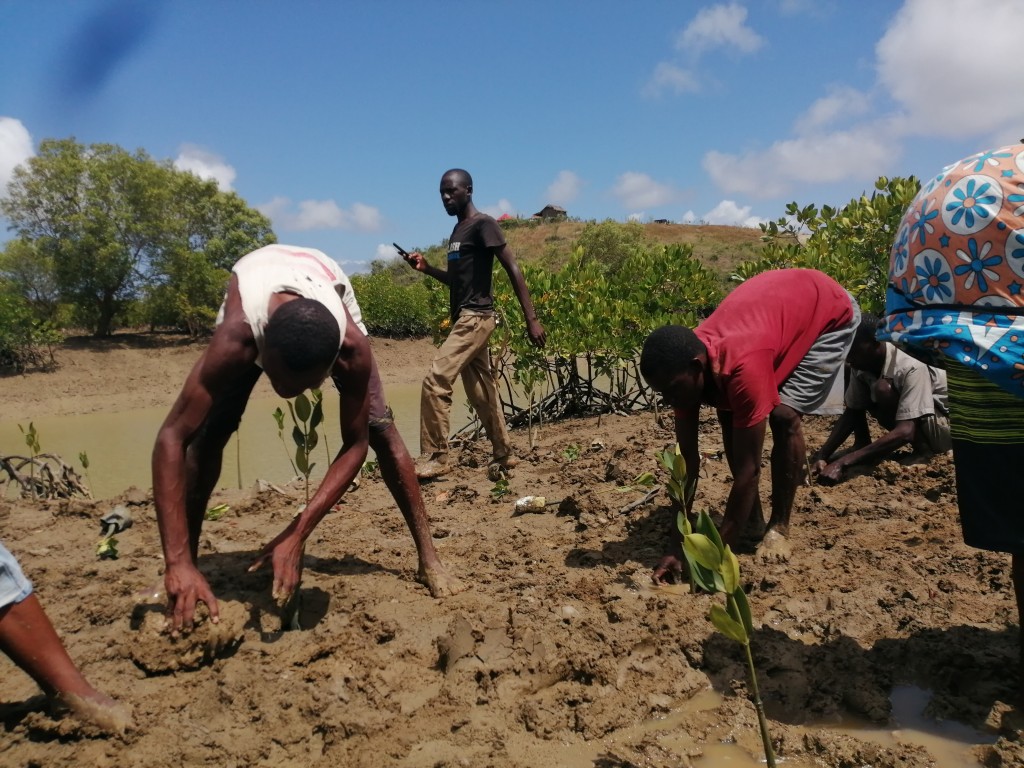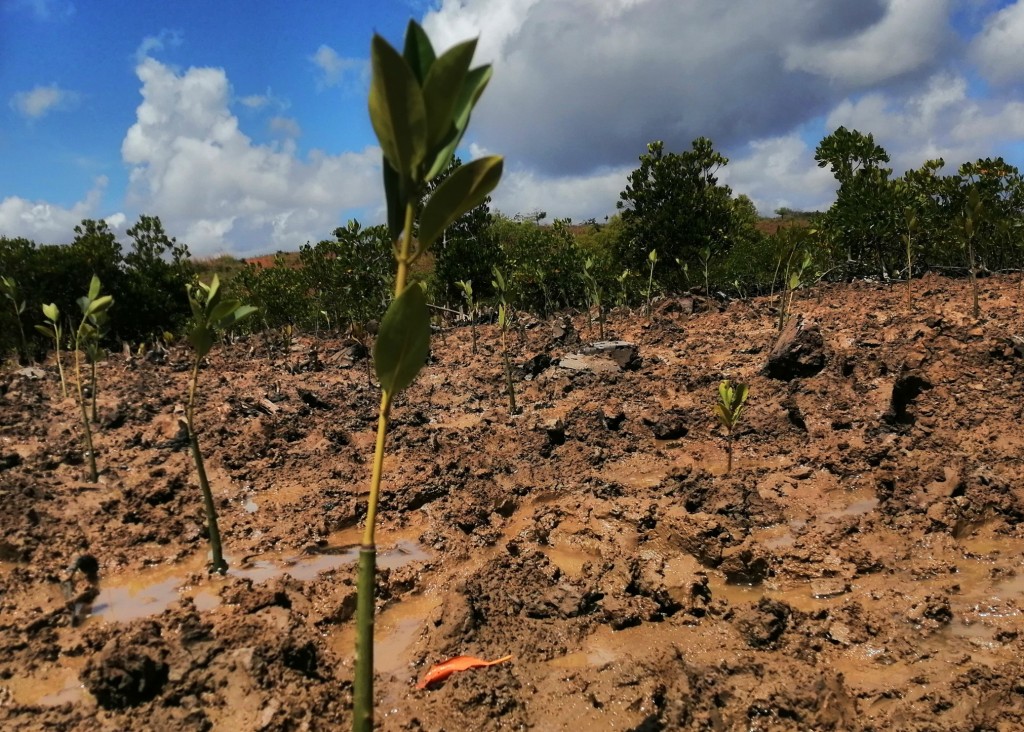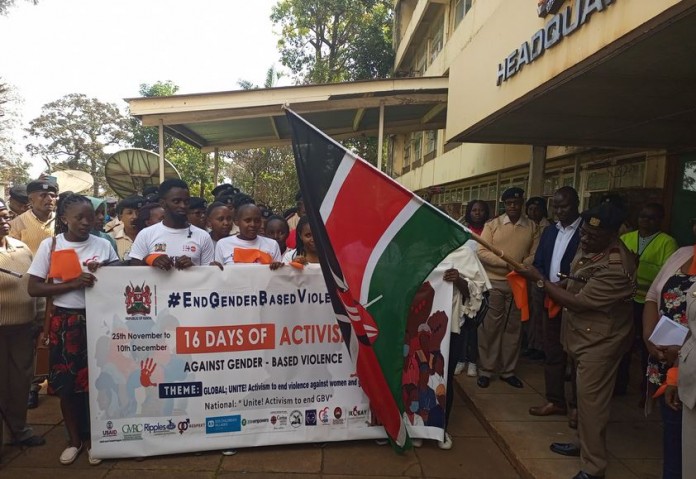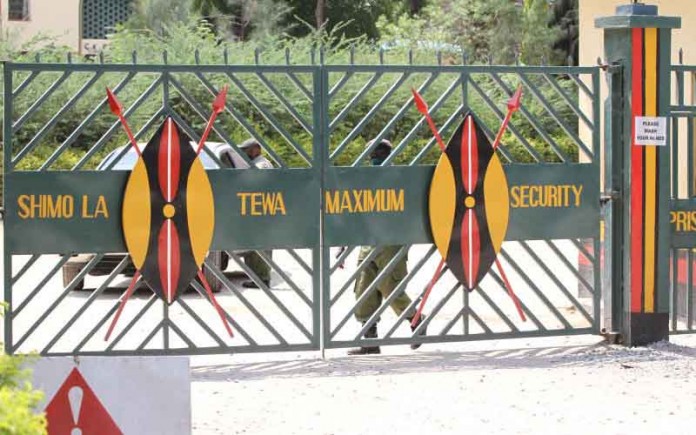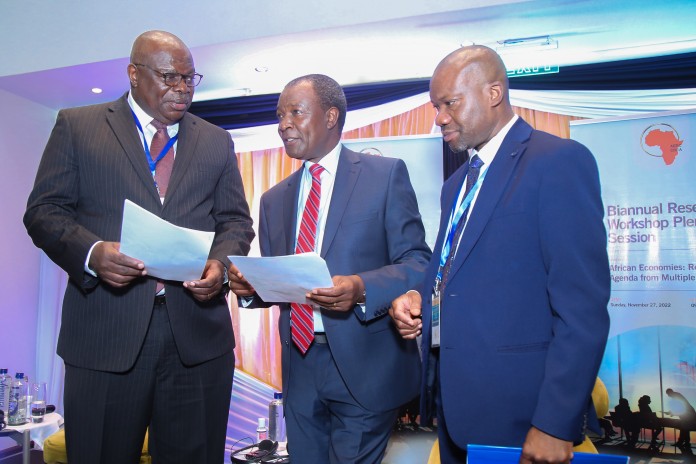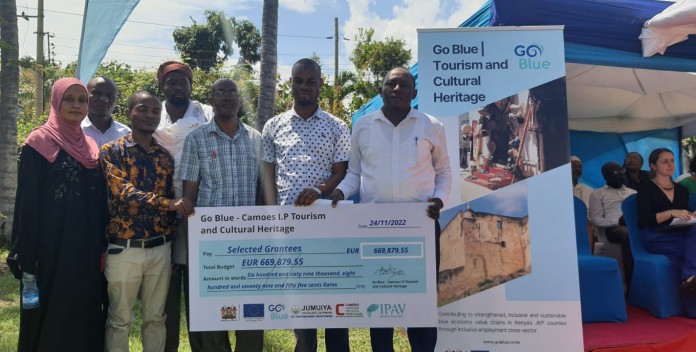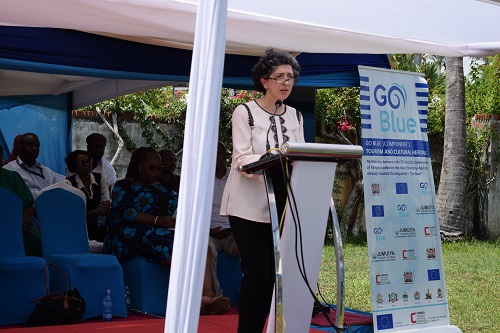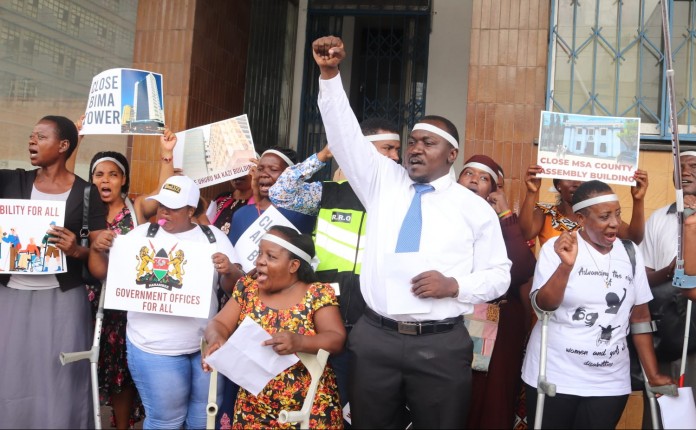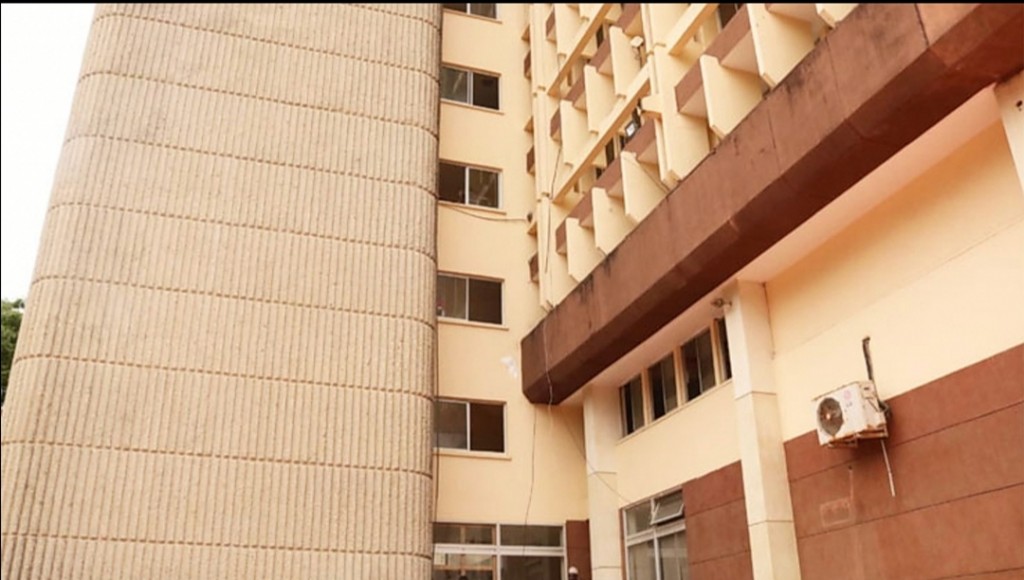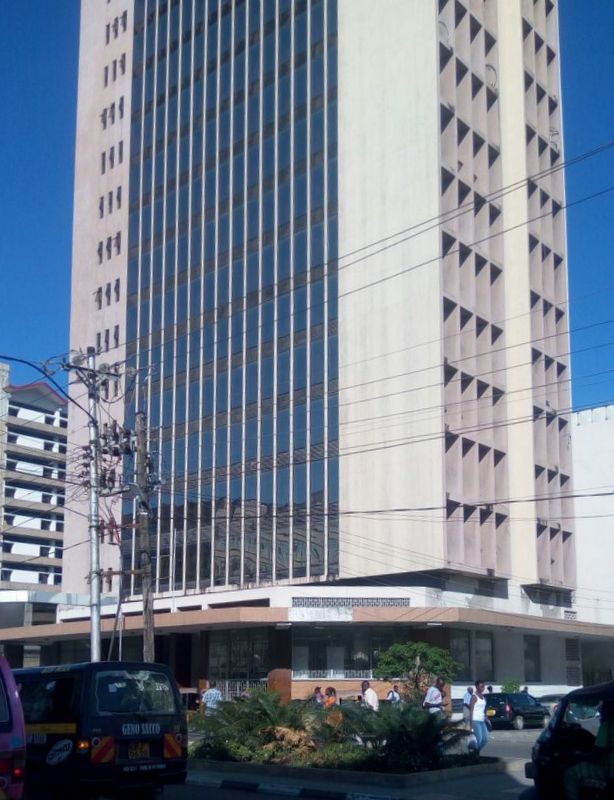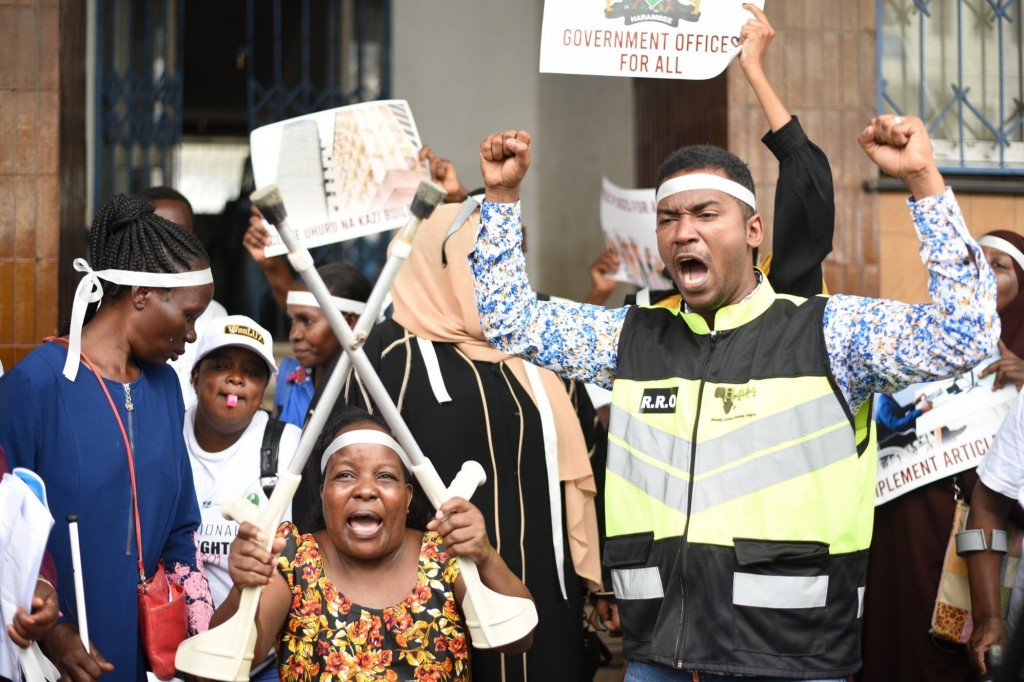Persons With Disabilities living in Mombasa on Friday petitioned the County government to ensure all public buildings in the county are accessible to PWDs.
The group held processions from Bima Towers Building along Digo Road to the Governor’s office in protest of being unable to access several buildings that house government offices due to infrastructural challenges.
Led by Coast Civil Society Organizations including Kituo Cha Sheria, Muslim for Human Rights (MUHURI), Ajenda Kenya, and HAKI Africa, the group presented the petition to Mombasa Governor Abdullswamad Sheriff Nassir at the county government offices.
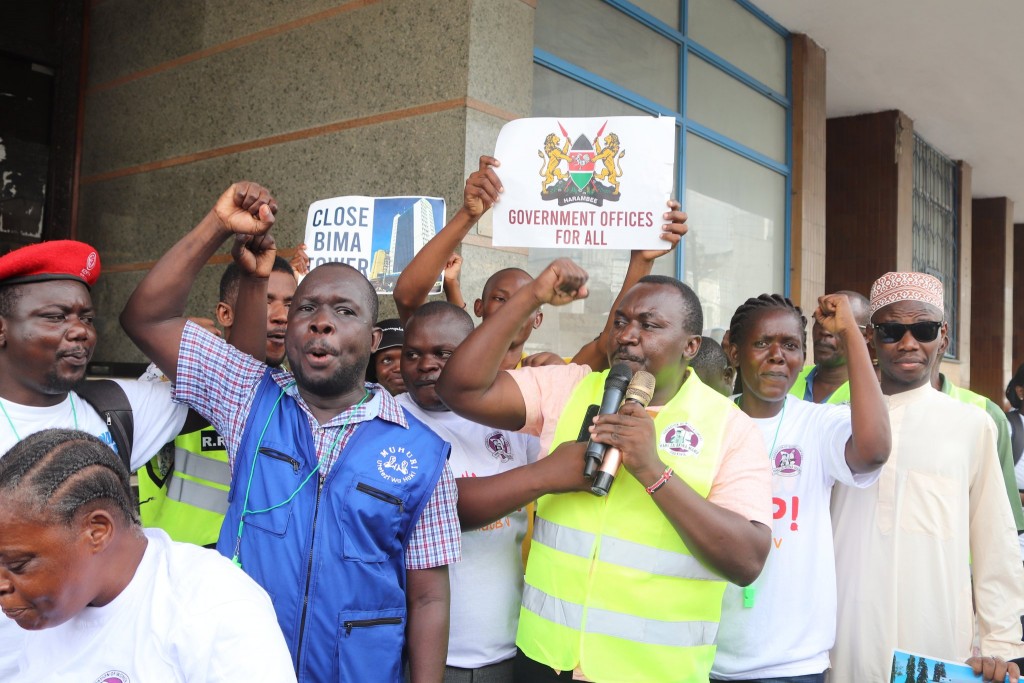
“According to the 2019 census, 2.2% (0.9 million people) of Kenyans live with some form of a disability. The results indicate that 1.9% of men have a disability compared with 2.5% of women,” read the petition.
The group has given both the national and county governments 30 days to comply with their demands failure to which they will proceed to court.
“According to Article 9 of the Conventions on Rights of Persons with Disabilities (CRPD), State parties shall take appropriate measures to ensure all persons living with disabilities access, on an equal basis with others, to the physical environment, to transportation, to information and communication,” read the petition.
“The State parties shall also take appropriate measures to develop, promulgate and monitor the implementation of minimum standards and guidelines for the accessibility of facilities and services provided to the public,” it continued to read.
Speaking during the procession, Coast Civil Society Network for Human Rights Chairperson Zedekiah Adika highlighted Bima Towers Building, Betting and Control Building, Mombasa DCC Offices at Treasury Building, Uhuru na Kazi Building and the County Assembly building as some that are inaccessible to PWDs.
He said most buildings in Mombasa are not friendly for the physically challenged.
Also read:PWDs decry inaccessibility to government offices in Mombasa
“The need and importance of personal mobility cannot be overstated. The government is bound to take steps to enforce laws and regulations on accessibility and personal mobility without which persons with disabilities cannot fully participate in all aspects of life or enjoy their freedom of movement,” said Adika.
During the procession, the Mombasa County Assembly promised to work on the accessibility issues in three months.
Meanwhile, Mombasa Abdullswamad Sheriff Nassir assured the group that the County will ensure all public buildings are accessible to PWDs.
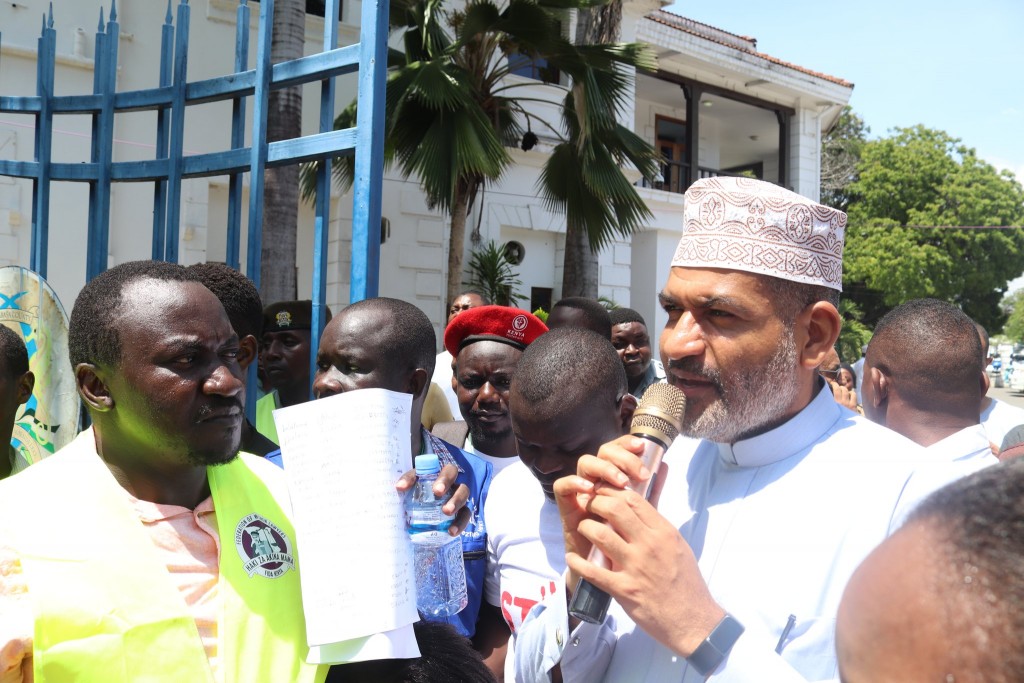
“One of the things we are going to consider is if they will not be able to ensure the accessibility then we will move our county offices to buildings that are accessible to PWDs,” said Governor Nassir.
The Mombasa Governor also took the opportunity to inform the group that Bima Towers is a national government building but assured them that he will be writing a letter to the national government to request that it renovates the building to ensure accessibility.
“The letter will be copied to the Federation of Women Lawyers and other CSOs. We will even give a commitment that in the event that the national government does not do this then we will consider very heavily that we move and find a place that is accessible to PWDs,” said Governor Nassir.
The petition was shared with the representative for Treasury, National Government, the County Assembly of Mombasa, and the Governor of Mombasa County.
The Petition is related to the inaccessibility of Government buildings in Mombasa, which has subsequently denied services to PWDs.


